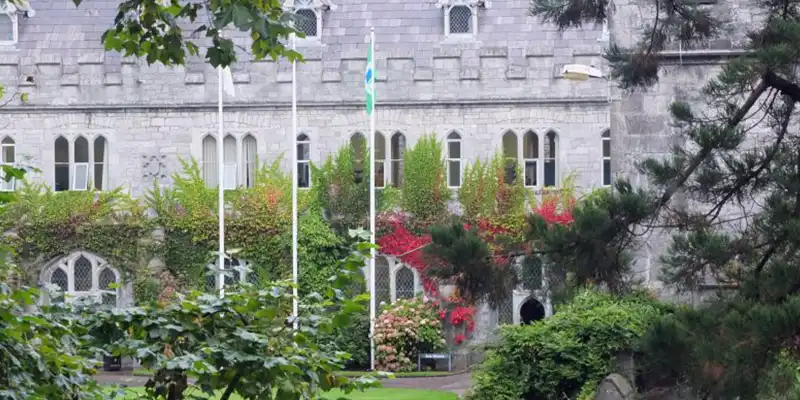In This Section
- Home
- About
- Student Led
- Research Informed
- Practice Focused
- Resources
- Case Studies
- Green Labs Community
- News
- Office of Sustainability and Climate Action
UCC ranks in world’s top ten “green” universities

UCC’s position as a globally leading “green” university has once again been recognised with a top ten position in the UI Green Metric World University Ranking. Achieving an impressively creditable 9th out of a total of 619 universities worldwide, UCC’s position in the UI Green Metric represents a global ranking of sustainability activities across operations, research, education and engagement. The result reflects both the commitment and action in UCC to advance sustainability across the entire university. In addition, UCC was again the top ranked Irish university for the 7th year in a row, endorsing our reputation as Ireland’s “green” university.
This wide-reaching support and commitment to sustainability in UCC is further evidenced in the recent decision by the University’s Management Team to sign up to the United Nations Principles of Responsible Investment (UNPRI). Divestment from the fossil fuel industry is imperative if we are to achieve the target set out in the Paris Agreement of limiting global temperature rise to 2°C. UCC divested from fossil fuels a number of years ago, and all of the university’s trust fund is ethically invested. The UNPRI were developed by an international group of institutional investors through a process convened by the United Nations Secretary General to consider the broad environmental, social and governance issues of investment funds and commit signatories to actively promote and encourage ethical investment. This commitment by UCC goes further than divestment from the fossil fuel industry as becoming a signatory requires the University to openly report on those ethical investments whose principles have been instrumental in large fund managers divesting of assets that are harmful to the environment and/or undermine social justice.
UCC researchers are amongst the best in the world in the fields of sustainability and environmental protection underlined earlier this month by the election of Dr Áine Ryall, UCC School of Law and ERI, as Vice Chair of the Aarhus Convention Compliance Committee.
The Aarhus Convention is an international multilateral environmental agreement which guarantees the public, including NGOs: the right of access to information; the right to participate in decision-making; and the right of access to justice in environmental matters. It is key to protecting the right to live in an environment that is adequate to health and well-being. The Aarhus Convention Compliance Committee comprises nine international legal experts who review submissions from the public and make findings and recommendations concerning compliance with Convention obligations by the 47 States who have ratified the Convention. Dr Ryall, who recently served as a member of the Expert Advisory Group to the Citizens’ Assembly on climate change, is a qualified barrister and teaches and researches environmental law, climate law and EU law at UCC.
UCC’s reputation as Ireland’s ‘green’ university is also supported by the fact that it is the first university in the country to achieve the government’s 33% energy efficiency target for the public sector – three years ahead of schedule. Much of this achievement is down to the efforts of green energy teams across the campus who are supported by the Buildings and Estates energy manager to take control of, and reduce, their energy consumption.
Professor John O’Halloran Vice President for Teaching and Learning and Co-Chair of UCC Green forum says:
“We are delighted to be ranked so highly for our green initiatives at UCC. Our student- led, research-informed and practice-focussed mission has helped us change our practices in the University and that of our suppliers. Among the highlights are a reduction in printer paper use from 25 million in 2009 to four million in 2016 and our big energy savings. Our students and staff care about sustainability and this local action is having a global impact.”
Green Campus
Contact us
University College Cork, College Road, Cork T12 YN60,
- greencampus@ucc.ie
- Dr Maria Kirrane, Sustainability Officer - m.kirrane@ucc.ie
